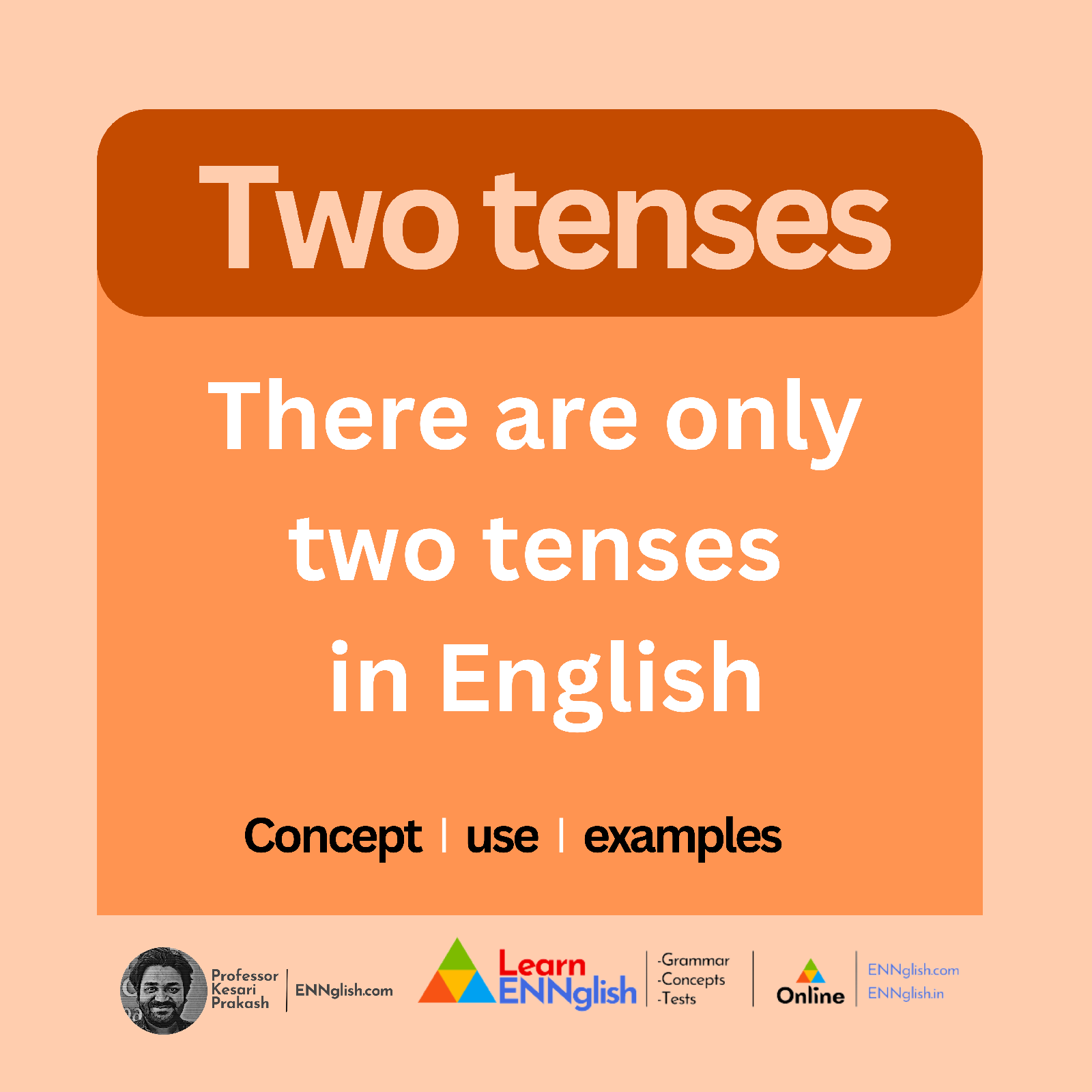There are two tenses in English: present and past.
I was shocked when I read this sentence on the British Council’s webpage. I thought there must have been a mistake, committed intentionally to get the attention of readers. I read the full article, but it was not explained how it was. I emailed and also posted a question. Within some hours, they replied (as they usually do):
—-
Hi Prakash,
It’s a good question. First, I should define what a tense is: it is a form of a verb that expresses time. For example, take and took are the present tense and past tense of the verb take.
Technically speaking, will take is not a form of the verb take, because it is not made by changing the form of take itself. Instead, it is made by adding another verb (will) which supplies the future time meaning. That’s why we can’t call will take a tense.
However, in common and non-technical speaking, people do commonly say that will + infinitive verb is the “future tense” (even though from a technical point of view, that term is incorrect).
I hope that helps to understand it.
Jonathan
The LearnEnglish Team
British Council
——
Language Lover, Learner.


